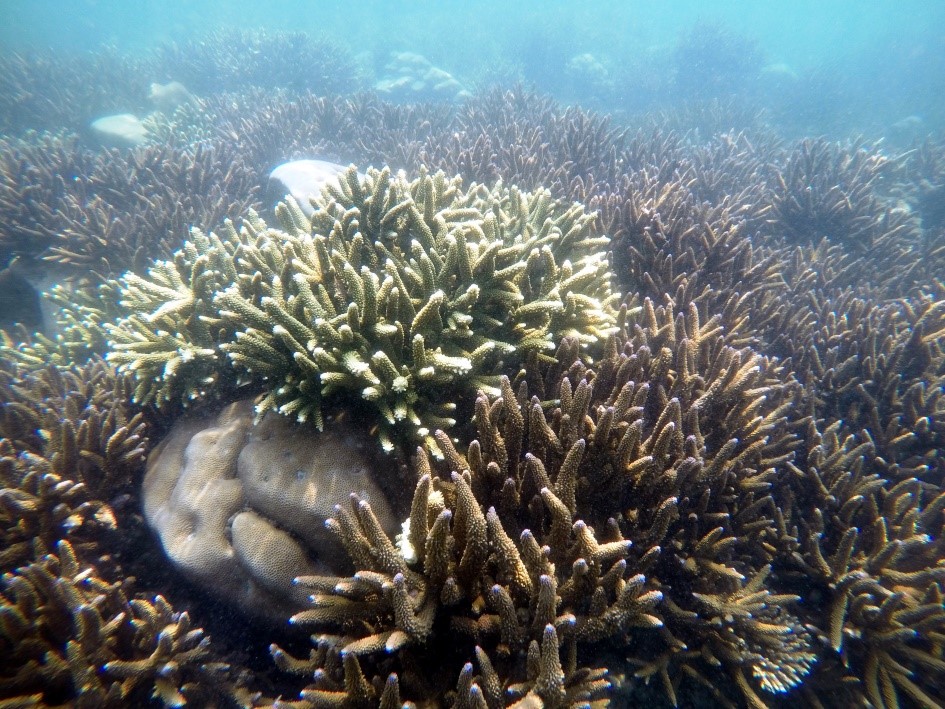
Invasive Marine Sponge Found In Gulf of Mannar
- News
- 2.9K
Coral reefs in the Gulf of Mannar in Tamil Nadu are facing a new threat. Researchers have found that an invasive marine sponge species, Terpios hoshinota, is growing aggressively over live coral colonies in Van Island in the Mannar Bay, which could prove fatal for coral reefs there.
The researchers found the sea sponge growth in coral colonies at one-meter depth during a routine underwater coral monitoring survey in September 2015.
Terpios hoshinota was first reported in Guam in the western Pacific Ocean, with subsequent reports from Japan, Taiwan, American Samoa, Philippines, Thailand, Australia, Indonesia, and the Maldives. It has recently also been reported in the Indian reefs from Palk Bay.

Coral reefs in Gulf of Mannar
“Invasion of Terpios hoshinota has proved devastating for corals, as this sponge can outcompete and kill coral colonies. The present observation of it in Gulf of Mannar poses a significant new threat to the corals in the area,” said Dr. K. Diraviya Raj, Assistant Professor at Suganthi Devadason Marine Research Institute (SDMRI) at Tuticorin in Tamil Nadu and a member of the research team, while speaking to India Science Wire.
The Gulf of Mannar is known for the high level of diversity and productivity of its reefs. A large population of fishermen depends directly on coral reefs for their livelihood and any loss in the productivity of the system would be of huge concern.
Earlier the area faced the problem of rampant coral mining. The government had banned coral mining in 2001 and it was stopped in 2005. After this, corals in the area seemed to be recovering gradually. However, persistent threats such as bleaching, diseases, destructive fishing and pollution are already causing significant damage to the corals of Gulf of Mannar. Now, the new threat of growth of the invasive sponge marine has added to the problems.
“Further studies are needed to determine the extent of the invasion of sponge species on reefs in the Gulf of Mannar and the rate of progression over live coral colonies,” Dr. Raj noted.
Generally, dead coral skeletons host high numbers of sponge species than live corals. However, there are few species of sponge, which can overgrow live corals and eventually kill them. Terpios hoshinota is such a sponge species that aggressively overgrows live coral and can undergo outbreaks causing significant declines in live coral cover.
The Tuticorin institute conducted the study in collaboration with the University of Hawaii. In addition to Dr. Raj, the research team included M. Selva Bharath, G. Mathews, Greta S. Aeby and J. K. Patterson Edward. The study has been published in journal Current Science. (India Science Wire)
Umashankar Mishra
For the latest Science, Tech news and conversations, follow Research Stash on Twitter, Facebook, and subscribe to our YouTube channel


